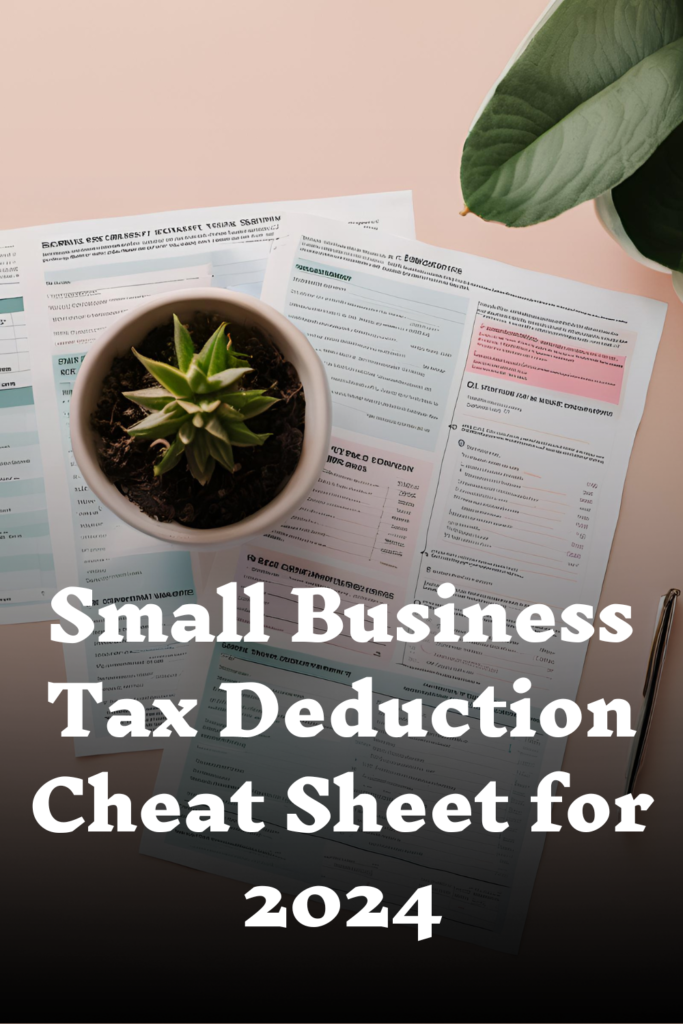Navigating the intricacies of small business tax deduction can be daunting for business owners, particularly when aiming to legally minimize tax liabilities. With over 1,000 people in the U.S. searching each month for methods to lower their tax burden, it’s evident that many seek legitimate tax deductions over loopholes. Evading taxes can result in severe repercussions from tax authorities. Rather than attempting to bypass taxes, concentrate on discovering legal strategies to reduce your tax burden while ensuring your business remains compliant. This cheat sheet will cover essential topics to help you effectively navigate the tax landscape:

- Understanding the Small Business Tax Rate
- 2024 Income Tax Brackets
- What is a Tax Write-Off?
- How Tax Write-Offs Work
- Essential Deductions for Small Businesses
By the conclusion of this article, you’ll gain essential insights to minimize your income tax expenses and simplify your filing process.
Understanding the Small Business Tax Rate
What You Need to Know About Tax Rates
The amount of taxes small businesses pay to the federal government varies based on income levels and business structure. If your business is structured as a C corporation, you’ll face a flat federal tax rate of 21% on net income. This means that after deducting allowable expenses from your sales, you will pay taxes on your profits. For pass-through entities—including sole proprietorships, partnerships, limited liability companies (LLCs), and S corporations—the tax rates range from 10% to 37%. The larger your income, the higher the rate you will pay on pass-through income. Understanding these rates is crucial for effective financial planning and tax strategy. For more details on corporate taxes, visit the IRS Corporate Tax page.
2024 Income Tax Brackets
Stay Informed About Tax Brackets
As you prepare for the upcoming tax season, it’s essential to familiarize yourself with the 2024 income tax brackets:
| Rate | Individuals | Married Couples Filing Jointly | Heads of Households |
| 10% | Up to $11,600 | Up to $23,200 | Up to $16,550 |
| 12% | $11,601 – $47,150 | $23,201 – $94,300 | $16,551 – $63,100 |
| 22% | $47,151 – $100,525 | $94,301 – $201,050 | $63,101 – $100,500 |
| 24% | $100,526 – $191,950 | $201,051 – $383,900 | $100,501 – $191,950 |
| 32% | $191,951 – $243,725 | $383,901 – $487,450 | $191,951 – $243,700 |
| 35% | $243,726 – $609,350 | $487,451 – $731,200 | $243,701 – $609,350 |
| 37% | Over $609,350 | Over $731,200 | Over $609,350 |
Being aware of these brackets can help you make informed decisions about your finances and anticipate your tax obligations. For more information on individual income taxes and brackets visit the IRS Individual Income Tax page.
What is a Tax Write-Off?
Understanding Deductions
Tax write-offs are expenses that can be deducted from your taxable income when you file your taxes. These deductions reduce the amount you owe to the government, allowing you to keep more money for business operations. However, many small business owners struggle to identify which expenses qualify as deductible. According to the IRS:
“To be deductible, a business expense must be both ordinary and necessary.”
This means the expense should be common in your industry and beneficial for your business operations.

How Do Tax Write-Offs Work?
Navigating Deductions Effectively
The primary purpose of tax write-offs is straightforward: they decrease the amount you pay in taxes. When filing for deductions, you can choose between standard deductions or itemized deductions.
- Standard Deductions: Fixed amounts set by the government based on your filing status.
- Itemized Deductions: Require detailed record-keeping of all eligible expenses but may provide greater savings if your total exceeds the standard deduction.
Proper documentation is essential if audited by tax authorities. Consulting a financial adviser can help you maximize deductions while staying compliant with regulations. For more information on deductions and recordkeeping requirements, visit the IRS Recordkeeping page.
Small Business Tax Deduction Cheat Sheet
Key Deductions You Need to Understand
To assist you in maximizing your deductions when filing your taxes in 2024, here’s a cheat sheet of potential deductions available for small businesses:
- Business Travel Expenses:
- What It Is: Expenses related to business travel.
- Details: You can deduct expenses like flights and hotel stays if they are necessary for conducting business.
- Conditions: The trip must be necessary and away from your primary business city or area.
- Business Meals:
- What It Is: Meals provided during business meetings or events.
- Details: You can partially deduct meals at company parties (100%) and meals with clients (50%).
- Deductibility: Keep receipts and note who was present during these meals.
- Business Interest:
- What It Is: Interest paid on loans used for business operations.
- Details: This interest is entirely deductible but capped at 30% of your taxable income.
- Example: If you have a loan for purchasing equipment or expanding operations.
- Contractor Labor:
- What It Is: Payments made to freelancers or independent contractors.
- Details: You can fully deduct these costs.
- Documentation: Issue Form 1099-NEC for any contractor earning over $600.
- Advertising Costs:
- What It Is: Funds allocated for marketing your business.
- Details: This includes online ads (like Google Ads) or traditional advertising (like flyers).
- Examples: Advertising on social media platforms or print media.
- Bad Debt:
- What It Is: Unrecoverable debt owed to you.
- Details: If a customer fails to pay their invoice despite efforts to collect it.
- Proof Required: You need sufficient evidence that it was a legitimate business debt.
- Depreciation:
- What It Is: A way to deduct the cost of an asset over its useful life.
- Details: Instead of deducting the full cost in one year, spread it out over several years.
- Calculation Example: If you buy a computer for your business at $1,000 and it has a useful life of five years; you could deduct around $200 each year.
- Insurance Premiums:
- What It Is: Payments made for various types of insurance.
- Details: This includes commercial property insurance and health insurance for employees under specific conditions.
- Types Covered: General liability insurance or professional liability insurance.
- Legal Fees:
- What It Is: Expenses incurred for legal services associated with your business.
- Details: Fees paid for contracts or consultations regarding legal matters are deductible.
- For more details visit the IRS Legal Fees page.
- Charitable Contributions:
- What It Is: Donations made to qualifying organizations.
- Details: Cash contributions are typically deductible; make sure they go to qualified charities.
- Salaries and Employee Benefits:
- What It Is: Compensation provided to employees.
- Details: Salaries are generally deductible as long as they are reasonable and necessary for running the business.
- Utilities:
- What It Is: Recurring monthly expenses necessary for business operations (such as electricity or internet).
- Details: These bills must be mainly for work-related activities; personal expenses are not deductible.
- Home Office Deduction:
- What It Is: A deduction available if you use part of your home exclusively for business purposes.
Details: You can deduct up to $5 per square foot used for business up to a maximum of 300 square feet (i.e., up to a total deduction of $1,500).
Final Thoughts
As a small business owner, navigating the complexities of taxes can be overwhelming. However, understanding available deductions and employing strategic planning techniques can legally reduce your tax obligations while keeping your business accountable. If you’re unsure how to maximize your deductions or need help deciphering tax jargon, consider hiring a financial expert to guide you through the process, allowing you to focus on growing your business. Furthermore, if you’re seeking financial support to navigate these challenges or plan for future growth opportunities without incurring high interest rates or fees, explore this loan offer. Such resources can be vital as you work towards financial stability. Your financial health is crucial—start planning today!
Disclaimer: This article may contain affiliate links. If you make a purchase through these links, I may earn a commission at no additional cost to you. Thank you for your support!



Leave a Reply